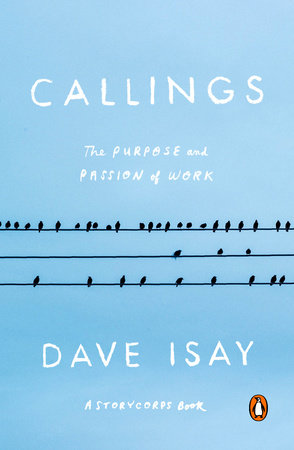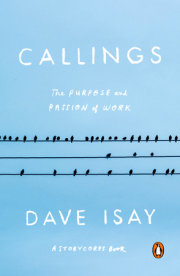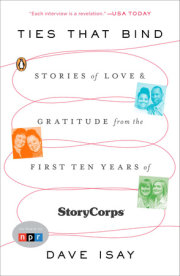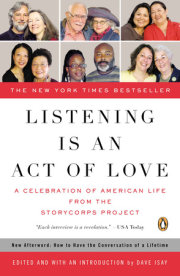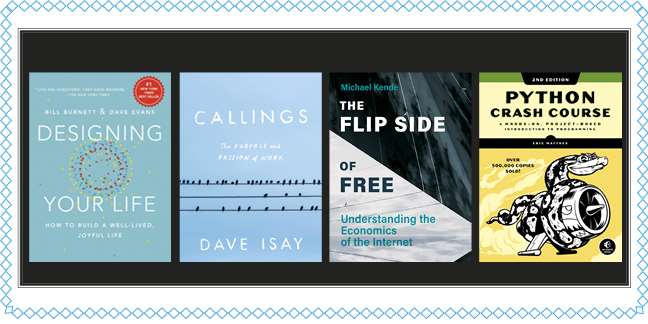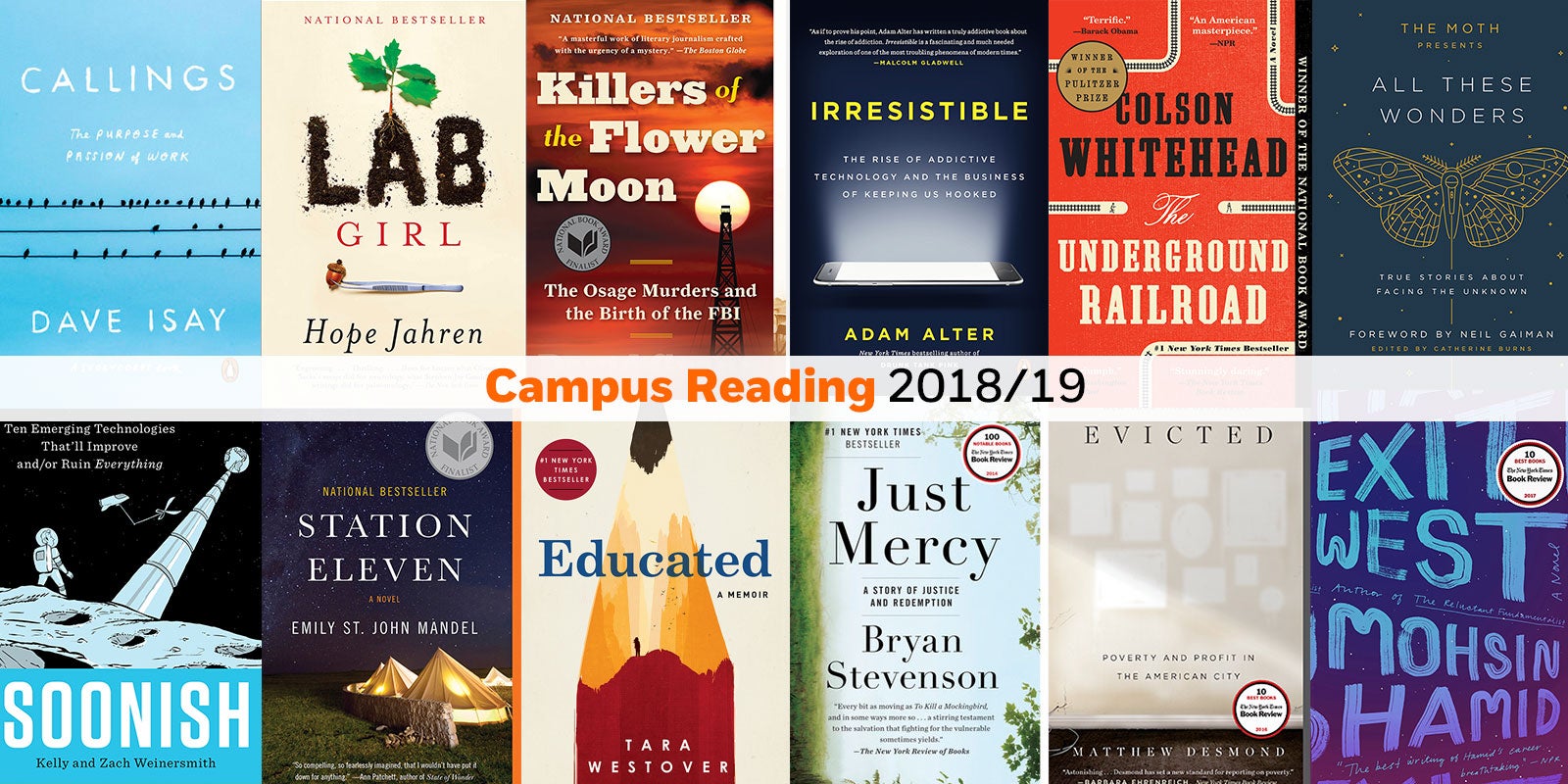INTRODUCTION
The idea for
Callings came four years ago. It was around Mother’s Day, and our StoryCorps book about moms had just come out. I was lucky enough to go on
The Colbert Report to talk about it. My wife was pregnant with our second child at the time. The day after I did the show, we had an appointment with our beloved ob-gyn, Austin Chen.
I adored this woman from the minute I met her: tiny, fierce, mercilessly blunt, brilliant at her work. I knew a little bit about her. I knew that she worked ferociously hard. I knew that she biked everywhere she went—to her office, to the hospital in the middle of the night to deliver babies. I knew that she had made the commitment to personally deliver the babies of every single one of her patients, which meant she was on call twenty-four hours a day, 365 days a year. She told me that she had tried to leave town only once in the twelve years since she’d started her practice, to say good-bye to her father, who was dying. But while she was there, a patient called to say she was in labor. Dr. Chen left so she could meet her patient at the hospital. She was not able to be with her dad when he died.
Dr. Chen had seen me on TV the night before our appointment, and as we were leaving she said, “I wish I had done something important enough with my life to be on
Colbert.” I was stunned. I told her that as far as I was concerned, if you took everyone who had ever been on the show and added up everything they’d accomplished, they wouldn’t hold a candle to her. She shook her head and ushered me out of her office.
Later that day I had a meeting with our publisher to figure out the next StoryCorps book. I told her about my conversation with Dr. Chen earlier in the day. We looked at each other and we knew we had our answer—the book you now hold in your hands:
Callings. (A year later, I recorded a StoryCorps interview with Dr. Chen about her work, which you can read on page 142.)
I am thankful every single day that I was lucky enough to find my calling as a young man. I was twenty-two years old, headed to medical school, when I fell into public radio completely by accident. The moment I pressed the button on the tape recorder to begin my first interview, I had an overwhelming sense that I had found what I was going to do for the rest of my life. A few weeks later I withdrew from medical school. It was a terrifying decision, but one of the best I’ve ever made.
My fate was sealed.
The theme of work threads throughout StoryCorps’ dozenyear history. The legendary oral historian Studs Terkel, whose most famous book is
Working: People Talk About What They Do All Day and How They Feel About What They Do, cut the ribbon on our first StoryCorps booth in Grand Central Terminal. “We know who the architect of Grand Central was,” shouted a stone-deaf ninety-one-year-old Studs at the launch. “But who were the brick masons? Who swept these floors?” Studs implored us to celebrate these stories, and we’ve devoted ourselves absolutely to the task since that day.
Work, Studs wrote, is about the search “for daily meaning as well as daily bread, for recognition as well as cash, for astonishment rather than torpor; in short, for a sort of life rather than a Monday through Friday sort of dying.”
Callings is in many ways a 257-page proof of Terkel’s proposition.
Many of the sixty-five thousand conversations recorded in StoryCorps booths across America over the past dozen years have dealt with the subject of work, and we’ve dug deep into our archive to cull the most powerful stories and the wisest words from those interviews for this collection. The following pages are filled with the stories of everyday people who have found—and often fought—their way to doing exactly what they were meant to do with their lives. These are the voices of men and women of varied age, geographies, and backgrounds, driven by a fire from within to find meaning in their work.
Listening has always been at the heart of StoryCorps’ mission. And, as you’ll read in these stories, finding what you’re meant to do with your life has a lot to do with careful listening—to that quiet voice inside that speaks to who you really are. As the writer and teacher Parker Palmer wrote in his book
Let Your Life Speak, “Before you tell your life what you intend to do with it, listen for what it intends to do with you.”
Building StoryCorps has been the most difficult thing I’ve ever done—replete with moments of terror and doubt. But it’s also been the most rewarding and nourishing work experience of my life. I can’t imagine doing anything else. One of the original employees who helped launch StoryCorps described the work as: “Hard work. Blood work. Love work.” Which is an apt description for the work lives of so many who are fortunate enough to find their callings.
For those of you in search of your calling, consider yourself warned: this pursuit takes discipline, resilience, sacrifice, and tremendous hard work. At those moments when the fear creeps in and you’re unsure of where to go or what to do next, remember to trust your instincts always. Allow yourself to be led by what truly moves you. And don’t compromise your v alues—ever.
Whether you’ve found your calling, are on the journey, or have lost your way, may the heroes of this book—whether astronaut, ballpark beer vendor, or ob-gyn—help remind you of the importance of finding meaning in your work. May their words help give you the strength to listen to that still, small voice inside—that voice which can help you discover the work that you were born to do.
—Dave Isay
Copyright © 2017 by Dave Isay. All rights reserved. No part of this excerpt may be reproduced or reprinted without permission in writing from the publisher.

